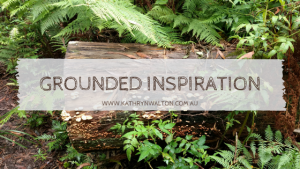We all experience it and we all have ways to manage it – some ways are more healthy and effective than others! This post is all about stress, the relaxation response, and how you can learn to stress less in nature.
Stress has a purpose
Typically we associate stress with overwhelm, overwork and feelings of dread and anxiety. It’s a complex system that involves your brain, nervous system and a range of bio chemicals that gets you ready for action. A couple of the stress hormones are quite famous so you’re probably familiar with their names – epinephrine or adrenaline, and cortisol. These hormones can have an enormous impact on your physiology – your muscles become tense, and your heart rate and breathing rate increase.
These sorts of responses are really helpful when you’re in immediate danger because they help you to move quickly, for example to jump out of the way towards safety if you need to.
Ongoing stress impacts health
But when your brain and body remain in this type of stress loop for a long period of time, there are other impacts on your health – high blood pressure, coronary problems, brain changes that can contribute to depression, anxiety and addictions, obesity, problems with sleeping, difficulty relaxing and winding down, and irritability.
It’s as if your body is on full throttle and the brakes aren’t being activated.
Be ‘stress aware’
But did you know that this ‘full gas’ stress response can also happen when life seems good? When you’re racing through life, exercising hard, working long hours at a job even one that you love, coming home to care for your family, taking the kids to sport, getting the groceries, renovating the house, socialising on weekends – well, there’s a certain level of load on your body and brain then too. It’s important that you take stock of all of your loads, not just the dreaded ones when you’re trying to understand how your body deals with stress. You may not be aware of the build-up of your loads until things come crashing down.
Regulate your stress response
So if there’s a whole lot of throttle in your life, whether it’s wanted or unwanted, how can you regulate it so that your stress response doesn’t become unhealthy and lead you toward poor health – physical and mental?
#1 Where are you spending your energy and attention?
You can do an audit of your life to see where your energy and attention is going. Ask yourself:
- Are there things you can change, maybe let go of, or reprioritise to reduce the load?
- Are you saying yes to too many things?
- Do you feel pressure to live your life a particular way even though it might not feel right for you?
- Are you drinking lots of coffee? Alcohol? Tobacco or other drugs? These all put a load on your body and your brain.
- What about your sleep? Lack of sleep or poor quality sleep adds another load on your life.
- And your nutrition – what foods are you taking into your body that might be adding to your stresses or loads?
Once you’ve done some sorting to identify what’s contributing to your loads, you can move onto the next step.
#2 Bring about a relaxation response
If you’ve cleaned up the loads in your life, it’s now time to bring about a relaxation response. A relaxation response is a bit like the brake that stops the stress response from continuing to escalate and the stress building up over time. A relaxation response can counteract the stress response to some extent by slowing the breathing and heart rate, reducing tension in the muscles, lowering blood pressure and increasing a feeling of inner calm.
So what’s the secret formula to this amazing brake-inducing relaxation response?
You can learn to bring about a relaxation response using a range of cognitive (mind-based) and behavioural (action-based) strategies. Some of the most powerful ones are:
- certain breathing practices
- visualisations
- meditation
- tai chi
- yoga
- prayer
It can be very helpful to have a mentor or a teacher guide you to find the best practice for you and to help you problem-solve it when it doesn’t seem to work. This is one of my favourite parts of the work I do, because I know just how transformational it is when you discover a technique or strategy that meets your needs. In fact I believe that meditation and breathing practices are so important that they feature in every women’s retreat and every workshop I run no matter what the topic is, even my professional development programs!
More ways to bring about a relaxation response
Physical exercise can also help you to stress less and bring about the relaxation response. Brisk exercise is really good for releasing stress and tension, and gentle exercise can bring about a sense of calm. So my recommendation is to make sure you have a combination of brisk and gentle exercise in your week. Even better – learn to read your body patterns over time so you know which type of exercise you need at different times.
And another important ingredient here to managing your stress load is having great supports and relationships in your life.
Stress less activities in nature
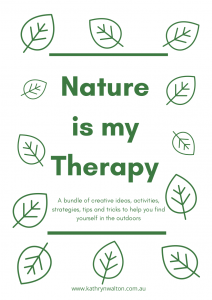 I’ve included some of my favourite stress less activities that you can do in nature in the “Nature is my Therapy Bundle”. You can grab a copy of this for yourself (for a limited time only) by heading over to my website and signing up for my email newsletter Grounded Inspiration. At the time of writing this blog post, the Nature is my Therapy Bundle is a gift that I send to all new subscribers of Grounded Inspiration.
I’ve included some of my favourite stress less activities that you can do in nature in the “Nature is my Therapy Bundle”. You can grab a copy of this for yourself (for a limited time only) by heading over to my website and signing up for my email newsletter Grounded Inspiration. At the time of writing this blog post, the Nature is my Therapy Bundle is a gift that I send to all new subscribers of Grounded Inspiration.
But in the meantime here are some stress less activities that you can do in nature right now:
- Go outside and spend a few minutes simply being still, listen to the sounds around you
- Go for a walk outside to clear your head
- Have a yummy picnic in a natural environment
- Take your drawing, painting, writing or other craft outdoors
- Go on a nature treasure hunt
- Explore a park
- Give your worries to something outside like a tree or a stream
- Snap some photos of the beautiful little treasures you find outside
- Go on a camping trip
- Take your meditation practice outdoors
- Watch the sunset or sunrise
- Grow a garden, pot plants or herbs for kitchen
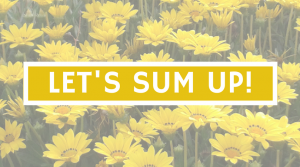
I do hope this post has given you a little bit of understanding about how stress works in your body, how it can affect physical and mental health, the importance of managing the loads you have in your life, and how you can bring about a relaxation response to put the brakes on the stress response. And of course some ideas to take your stress less activities outdoors and immerse yourself in nature.
Do you have a favourite stress less activity in the outdoors? Let me know by sending me a message!
Listen in to the podcast episode here!
Discovering mountain biking as life’s ultimate parallel universe in her middle age, Kathryn Walton shares information and reflections in Daisy Spoke that connect, inspire and self-empower women to make healthy choices for themselves. She integrates her love of physical exercise, family, nature, gardening and creative arts with her professional background in mental health social work to facilitate change with individuals, groups and communities of women who are committed to living life to the full.
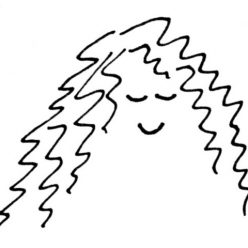

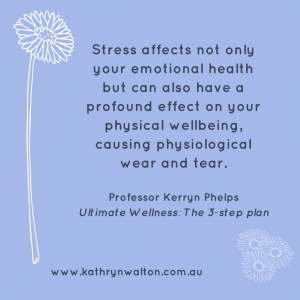
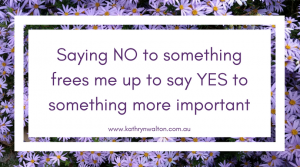
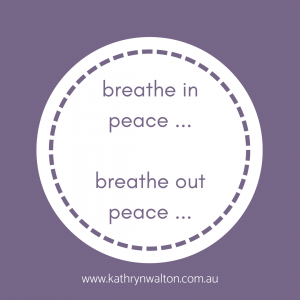
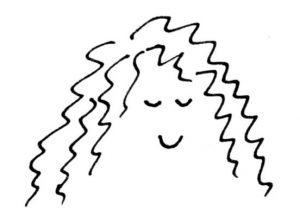
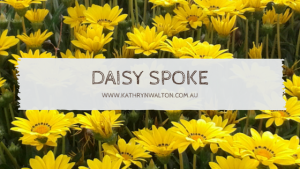

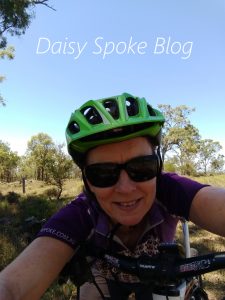 Daily exercise and general physical activity are crucial elements of feeling good. Just as some people might need to diligently take medication every day, I need to exercise every day. Exercise is nature’s way of stimulating the hormones which aid concentration, problem-solving, sleep, digestion, and mood. This daily dose of exercise rebalances our body’s systems resulting in wide-ranging benefits that no single medication can provide. The research is absolutely clear that regular medium to high intensity exercise can have a profound effect on health AND happiness.
Daily exercise and general physical activity are crucial elements of feeling good. Just as some people might need to diligently take medication every day, I need to exercise every day. Exercise is nature’s way of stimulating the hormones which aid concentration, problem-solving, sleep, digestion, and mood. This daily dose of exercise rebalances our body’s systems resulting in wide-ranging benefits that no single medication can provide. The research is absolutely clear that regular medium to high intensity exercise can have a profound effect on health AND happiness.
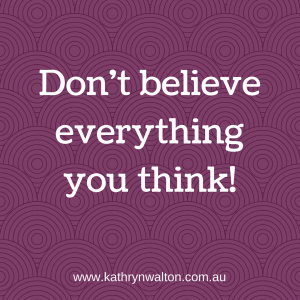 Minds are such complex things! They wield a lot of power over our emotions and our actions (including sleep). But unless you notice what’s going on in your mind, and choose how much power to give it, your thoughts, assumptions and beliefs will control you instead of the other way around. The habit of being hooked by thoughts or strongly attached to them is limiting and anxiety-provoking. The key here is to begin by simply noticing what is happening in your mind, and by doing this with curiosity and without judgement. The power is in the noticing. You’ll collect all sorts of interesting bits of information about how your mind works, what thinking patterns it gets locked into, what beliefs and assumptions are behind it all, and how all of this impacts your physiology, your behaviours and your emotions. One of my favourite sayings is “Don’t believe everything you think!” because we can learn to stand back, notice the thought and choose whether to believe it, or not.
Minds are such complex things! They wield a lot of power over our emotions and our actions (including sleep). But unless you notice what’s going on in your mind, and choose how much power to give it, your thoughts, assumptions and beliefs will control you instead of the other way around. The habit of being hooked by thoughts or strongly attached to them is limiting and anxiety-provoking. The key here is to begin by simply noticing what is happening in your mind, and by doing this with curiosity and without judgement. The power is in the noticing. You’ll collect all sorts of interesting bits of information about how your mind works, what thinking patterns it gets locked into, what beliefs and assumptions are behind it all, and how all of this impacts your physiology, your behaviours and your emotions. One of my favourite sayings is “Don’t believe everything you think!” because we can learn to stand back, notice the thought and choose whether to believe it, or not.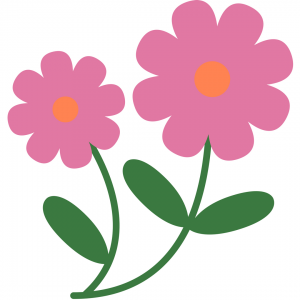 Click here to read my last blog post
Click here to read my last blog post 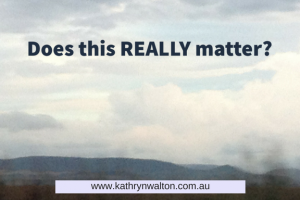
 example of mine was
example of mine was 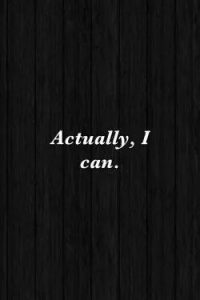
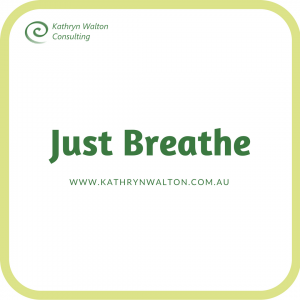 You can collect them from songs, poems, books and social media in addition to listening to your own inner wisdom. Write them on sticky notes, in a journal or diary, print out visual reminders to stick around your home or workplace, or even use them as screen savers and wallpapers on your electronic devices. Some examples include “Just do it”, “One drop raises the ocean”, “Keep it simple”, “Just breathe”, “Stand tall”.
You can collect them from songs, poems, books and social media in addition to listening to your own inner wisdom. Write them on sticky notes, in a journal or diary, print out visual reminders to stick around your home or workplace, or even use them as screen savers and wallpapers on your electronic devices. Some examples include “Just do it”, “One drop raises the ocean”, “Keep it simple”, “Just breathe”, “Stand tall”.
 lying on the beach, your stresses trickling away into the sand beneath you) or to help you progress towards a goal (eg visualise yourself speaking in front of an audience, feeling confident, upright posture, smiling, relaxed). When I’m feeling nervous about riding my bike on a particular section of track, I stop for a few moments and picture myself riding it the way I want it to go, as if I’m watching a short video of myself successfully negotiating that section. It truly is a powerful mind-based strategy and one you can use in every area of your life.
lying on the beach, your stresses trickling away into the sand beneath you) or to help you progress towards a goal (eg visualise yourself speaking in front of an audience, feeling confident, upright posture, smiling, relaxed). When I’m feeling nervous about riding my bike on a particular section of track, I stop for a few moments and picture myself riding it the way I want it to go, as if I’m watching a short video of myself successfully negotiating that section. It truly is a powerful mind-based strategy and one you can use in every area of your life.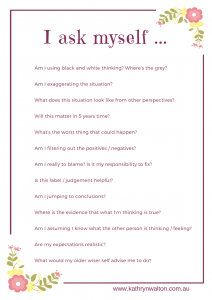 the mix. And to help you keep your strategies in play, I’ve created a free printable for you. “I ask myself …” is a beautiful keepsake of the helpful questions listed above. You can
the mix. And to help you keep your strategies in play, I’ve created a free printable for you. “I ask myself …” is a beautiful keepsake of the helpful questions listed above. You can 